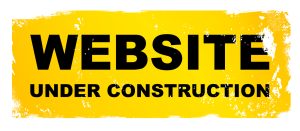Request a Appointment
Renting as a Solution:
The threat of foreclosure is an unsettling reality for many homeowners in the United States, and Georgia is no exception. When mortgage payments become a struggle, foreclosure seems an inevitable conclusion. However, there may be a way out that is not immediately apparent to many homeowners - renting out their homes.
By renting out your home, you may be able to cover your mortgage payments and potentially avoid foreclosure.
Covering the Mortgage Payment:
By renting out your home, you could generate income to cover your mortgage payment. This option is particularly attractive if the potential rental income exceeds the mortgage payment, creating a positive cash flow. For example, if your mortgage payment is $2,200 per month and you can rent your home for $2,500 per month, you would not only meet your mortgage obligations but also pocket $300.
Maintaining Home Equity:
If you are able to avoid foreclosure by renting out your home, you maintain the equity in your property. Foreclosure often results in homeowners losing their equity, which can be a significant financial blow. If the housing market improves, you could potentially sell the property later for a higher price, preserving, or even increasing, your equity.
Avoiding Credit Score Damage:
Foreclosure can significantly damage your credit score, which can affect your financial opportunities for many years. By renting out your home and meeting your mortgage payments, you could avoid this damage and maintain a healthier credit score.
Considerations and Steps:
As a landlord, you'd have obligations under Georgia's landlord-tenant laws. These include maintaining the property, handling repairs, managing security deposits, and respecting the tenant's rights. It is crucial to familiarize yourself with these laws before deciding to rent out your home.
The rental price should ideally cover your mortgage payment, property taxes, homeowner's insurance, and maintenance costs. Research the local rental market to ensure your price is competitive and attractive to potential tenants.
Finding reliable tenants is key to this strategy. Conduct thorough background checks on potential tenants, including credit checks, employment verification, and references from previous landlords. You want to ensure that your tenants will be able to pay the rent on time and will take good care of your property.
There's always the risk that you may not be able to find a tenant, or that your tenant may leave. During these periods of vacancy, you'll still need to cover your mortgage payments.
Tenants may not take care of your property as well as you would. This could result in property damage, which you'll need to repair.
If you plan to rent out your primary residence, you need to secure another place to live. Depending on your circumstances, this could mean renting a smaller, more affordable place, staying with family or friends, or even renting a portion of your own home, such as a basement or a room (known as house hacking).
Consult with a real estate professional or a lawyer who is knowledgeable about the foreclosure process, landlord-tenant laws, and the local rental market. They can provide valuable advice and help you avoid potential pitfalls.
There are legal considerations to take into account when renting out your home, including understanding your rights and responsibilities as a landlord, and ensuring you have the right insurance coverage.
Renting out your home to avoid foreclosure can be a viable strategy, but it's not without its challenges. It's important to carefully consider these factors and seek professional advice before deciding to become a landlord.
© All Copyrights 2023 Metropolitan Realty Group
Website powered by LeadMode Digital Marketing

